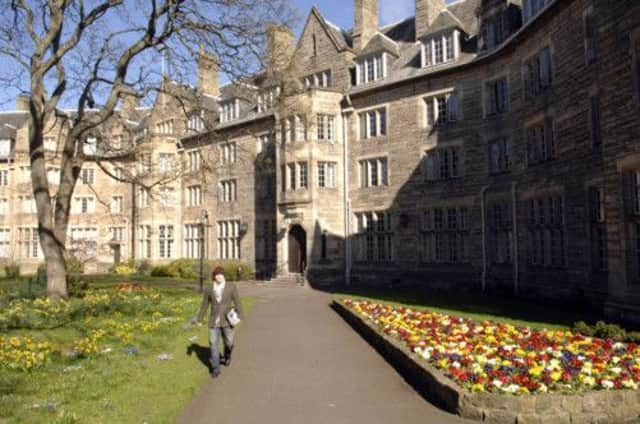Leaders: Research forces need for benefits rethink


That is the clear evidence of new research by Sheila Riddell, of Edinburgh University’s School of Education, and it demands that we look afresh at our assumptions – both social and political – about this touchstone issue of Scottish education.
This is not to argue that free tuition has not been a boon for many hard-pressed families, especially during a time of recession. But it brings into sharp relief the debate about the true value, to society as a whole, of free universal benefits. The evidence suggests we need more focused, thoughtful and strategic thinking on this issue.
Advertisement
Hide AdAdvertisement
Hide AdThe need to increase access to university is a given – the idea of a degree being the preserve of the middle and upper classes is surely offensive to the vast majority of Scots. But is free tuition the right mechanism to achieve a different outcome?
Not only does the Edinburgh University research conclude that free tuition has not “markedly altered” recruitment from the poorest communities, it suggests that universities in England have had more success by offering better financial inducements to the most deprived children.
Could it be that Scotland’s policy of free tuition has led to a degree of complacency about widening access, based on an assumption about the effect of this policy on the poor that this new research demonstrates may well have been unfounded?
Inevitably this raises questions about other universal benefits. Is there evidence that free prescriptions make Scotland healthier? In the case of both tuition fees and prescriptions, both were already free to the poorest people in the country before the SNP government made them free to all, regardless of income.
A distinction has to be made here between what works and what is electorally popular. It may well be that Scots want some key services in education and health to be universal – available to everyone, rich or poor. It is, of course, absolutely legitimate for politicians to seek a mandate to do that and to implement that policy once elected.
But if that is to be the case, let it be done with full clarity about the actual benefits for those sectors of society usually held up as being the key beneficiaries. It may well be the case, as the Edinburgh University research seems to suggest, that other more targeted measures are more successful in achieving laudable aims than a broad-brush approach.
The bottom line here is simple: is universality the aim, or is it the method of achieving the aim? If the former, then the job of politicians is to find the resources to fund that objective. If the latter, then this new research suggests we seriously need to rethink some of our basic assumptions.
Synthetic blood joins rich vein of success
THE long list of great Scottish scientific inventions down the ages, usually trotted out for the benefit of visitors from overseas, may in due course have a new addition: synthetic blood.
Advertisement
Hide AdAdvertisement
Hide AdIt was Scottish scientists who made the running in this field, culminating in experiments in 2010 to turn stem cells from spare IVF embryos into red blood cells. Now the UK’s licensing authority – the Medicines and Healthcare Products Regulatory Agency – has given permission to the Scottish Centre for Regenerative Medicine in Edinburgh to press ahead with developing products for trials in humans. This is sensitive research, of course. It is only right that all such testing and procedures must meet exacting criteria. But at the same time it is hard to overestimate the significance of this work, and the potential effect it could have on medicine globally.
It is worth noting, too, that new phases of this research will be conducted using cells from adults, further expanding the scale of the potential benefits of this work and allaying some people’s moral difficulty with stem cell research.
Once again, scientific endeavour in Scotland – which has produced Dolly the Sheep and breakthroughs in the understanding of cancer – has proven to be world class.
It is now up to the Scottish Government to ensure that the eventual moves into manufacturing of synthetic blood products fully benefit the country where they were developed.
With no shortage of bad news it is right we take time to experience a moment’s pride at the extraordinary scientific work being done within our borders. And endeavour to ensure such pioneering work continues to be a part of Scotland.